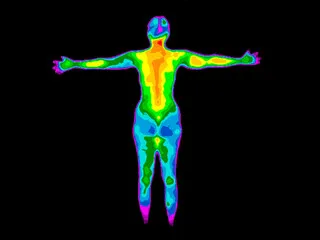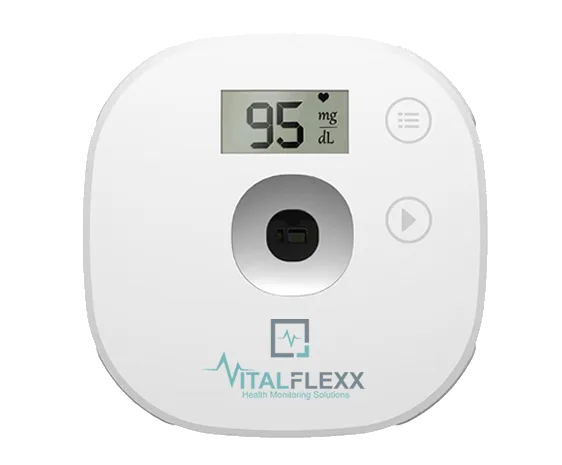Join Our Blog!
Sign up below to get the latest from our Blog and Newsfeed!

What Can Body Temperature Indicate About Your Health?
What Can Body Temperature Indicate About Your Health?
A million processes are happening inside our bodies that we stay completely unaware of. For example, the whole metabolic machinery runs inside, continually supplying cells with nutrients and oxygen. Moreover, there are also a lot of destructive processes that are happening simultaneously without the person knowing about it.
A balance is restored where the new cells being produced are equal to the number of cells being destroyed. However, any pathogen entering the body suffers from massive cell destruction. When the levels of destruction get higher, the body starts exhibiting signs and symptoms. This makes the individual aware that something is wrong with their body. It is a significant marker as it helps the person take charge and limit that cause. One of the first symptoms noticed and felt by that individual is raised body temperature.
Significance of body temperature and its relation with health
Humans have a natural thermostat that maintains an optimum body temperature in the environment. If a person feels too hot, they start sweating, and if they feel too cold, they start shivering. Both mechanisms are made so the body can reach an optimum temperature. Whenever the body temperature goes above or below the optimum temperature, it is a sign that something must be going wrong in the body, and immediate interventions should be taken to correct the pathology.
What is an optimal temperature, and why is it important?
The body must digest food for all the metabolic processes to take place. Digestion is aided by the help of enzymes, which work best at a specific temperature. This specific temperature is called the 'Optimal Temperature,' which is 37°C or 89.6°F. If the body temperature goes higher than 37°C or 89.6°F, the enzymes get denatured and ultimately lose their function. However, the enzymes stop working if the body temperature gets lower than the optimal temperature.
Since all the cells need nutrition, the working of the enzymes is significant, which is majorly controlled by body temperature. [1]
Why does the body temperature increase?
There are different reasons why the body temperature increases more than its optimum range. This condition is known as hyperthermia. There are a lot of reasons that can cause hyperthermia, some of which have been listed below:
· Invasion by a foreign body
The body responds differently to different stimuli in the body. For example, whenever a pathogen or organism enters the body, the immune system gets activated to destroy that organism. However, when those immune cells, also known as leukocytes, interact with the microorganisms, the thermoregulatory response gets deranged. This is what we call a fever. A fever is described as a rise in temperature of more than 38°C or 100°F.
· Inability to lose heat
The body naturally produces heat when needed and has mechanisms to turn the body temperature back to normal. This is done through the various sweat glands in our body that not just help lose heat but also lets the body get rid of waste products quickly. On the other hand, some individuals have defective glands that cannot produce sweat; hence, heat, once generated, cannot be dissipated and ends up resulting in a high body temperature. This condition is called Anhidrosis.
· Workout
When a person works out or performs strenuous exercises, the muscles must undergo more work, requiring immediate consumption of nutrients. At the same time, a lot of heat is dissipated as these exercises help burn calories faster. This raises the body's core temperature, and it takes a while to cool off completely. There is usually no pathology involved, but athletes who work out frequently have a slightly higher basal temperature than the ones who don't. [2]
Why does the body temperature decrease?
The body temperature can also dip lower than 37°C or 89.6°F, which is hypothermia. Many conditions can cause hypothermia. One of the most common is exposure to the surrounding cold temperature. It is often very dangerous if a person becomes hypothermic as the body starts slowing its metabolism down, and the body very quickly starts dropping its core temperature in such a state. Protective mechanisms to help the body from 'freezing to death' are shivering, piloerection, and constriction of blood vessels.
Shivering results from the muscles contracting involuntarily, which helps generate heat; this is one way the body tries to save from the cold.
Piloerection is known as getting 'goosebumps' in which the skin becomes taut enough to make the hair stand up. This forms insulation against the cold.
Constriction of blood vessels is a normal body response to cold, in which the blood vessels constrict so that heat loss from the skin can be prevented. This also helps preserve the blood flowing toward the major organs, such as the heart and the brain. [3]
There are categories in which hypothermia is measured. It is classified as mild, moderate, or severe. These help physicians decide how to treat such patients and when to deal with them aggressively.
Mild hypothermia- When the body temperature is less than 32-36°C or 90 to 95°F, it is considered mild hypothermia.
Moderate hypothermia is when the body temperature reaches between 28-32°C, which is between 82-90°F.
Severe hypothermia is a life-threatening condition requiring quick interventions; otherwise, the person can die. The temperature range lies between 20-28°C or less than 82°F.
Some causes of hypothermia are mentioned below;
Sepsis
Drug ingestion especially expected ethanol or alcohol
Hypothyroidism
Endocrine disorders
Additions diseases
Uremia
Hypoglycemia
All the above mentioned conditions cause body temperature to be lower than optimum. Therefore, a constant hypothermic state with cold flushed skin is a sign to consult a physician. [4]
Conclusion
Body temperature is a critical factor that gives a lot of health information. A person with normal bodily functions is less likely to suffer from pathology. A sign of good health is to have the body at an optimum temperature throughout the day. Slight variations occur due to environmental changes, but they are harmless unless the body undergoes extremes of temperature. Therefore, it is essential to check body temperature, and any unusual feeling of being feverish or too cold should be taken seriously.
You can keep track of all of your temperature readings and keep your doctors or family automatically informed with the VitalFlexx™ 6-in-1 Health Monitor.
https://healthflexxinc.com/vitalflexx6in1

References
Del Bene VE. Temperature. In: Walker HK, Hall WD, Hurst JW, editors. Clinical Methods: The History, Physical, and Laboratory Examinations. 3rd edition. Boston: Butterworths; 1990. Chapter 218. Available from: https://www.ncbi.nlm.nih.gov/books/NBK331/
InformedHealth.org [Internet]. Cologne, Germany: Institute for Quality and Efficiency in Health Care (IQWiG); 2006-. How is body temperature regulated, and what is fever? 2009 July 30 [Updated 2016 November 17]. Available from: https://www.ncbi.nlm.nih.gov/books/NBK279457/
Duong H, Patel G. Hypothermia.
WebMD. (n.d.). Hypothermia: Signs, symptoms, causes, and treatment. WebMD. Retrieved December 26, 2022, from https://www.webmd.com/a-to-z-guides/what-is-hypothermia

